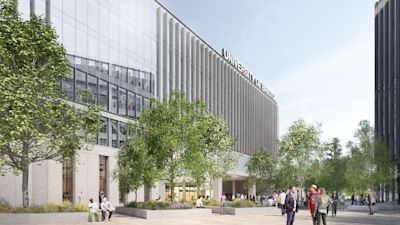Bristol University delays Temple Quarter Campus after Covid and Brexit 'uncertainty'

The construction of Bristol University's Temple Quarter Campus has been delayed again and is now not expected to open until 2025.
The university said uncertainties caused by Brexit and the coronavirus pandemic has meant work on the site will be postponed.
This is the second time work on the new £300million campus has been delayed after original plans to open in 2022 were also postponed.
The university has partially blamed Covid and new ways of working for the set back.
They said the changes have forced them to rethink how they will maintain resilience and flexibility over future years.
They are now redesigning some of the spaces and layouts in the main academic building on Cattle Market Road, so that they better fit needs for the future.
Barra Mac Ruairí, the University's Chief Property Officer, said: "We are committed to Temple Quarter.
"We have taken on a challenging site in a challenging time with a scheme which is unique in terms of its activity.
"It’s a great project where learning, research, workshops and a civic building come together as one which is core to our future.
"A project of this scale and ambition comes with a range of complexities, which have been exacerbated by the ongoing pandemic.
"However, we have pushed forward and will use this time to recalibrate and make the project even stronger and add more resilience.
"Our ambition is clear but any delay is disappointing, our vision for the Temple Quarter Enterprise Campus has not changed and we remain 100 per cent committed to contribute to the research, innovation and skills required to drive the city and region's post-COVID recovery and help regenerate and deliver the future vision for Temple Quarter and St Philip's Marsh."
The Temple Quarter Enterprise Campus will be home to 3,000 students and 800 university staff, business and community partners and provide residential accommodation for 953 students.
The new campus will help join the city centre to the east of Bristol with new walking and cycling paths and deliver an estimated £626 million of employment and financial benefit to the regional economy over the next decade.
Read more: